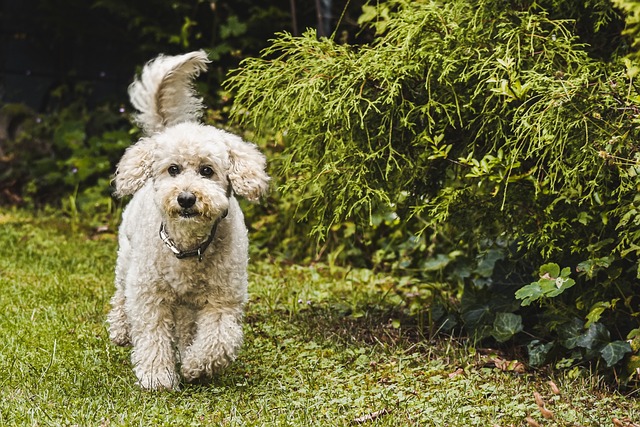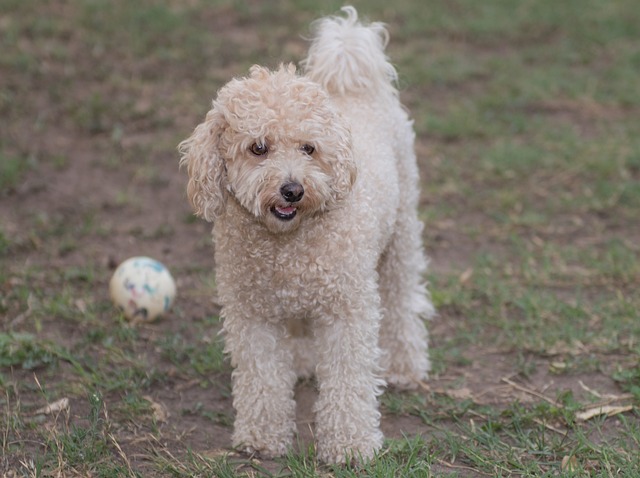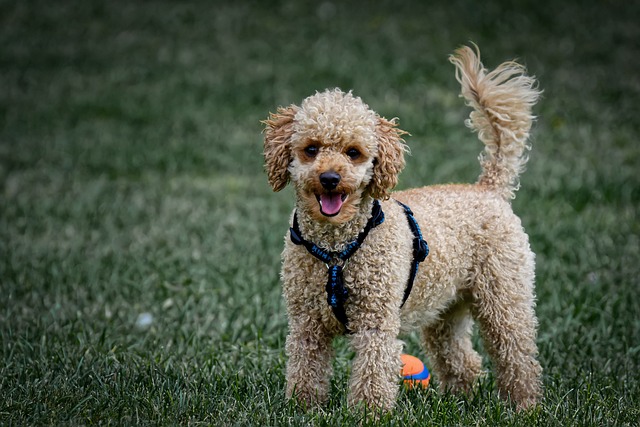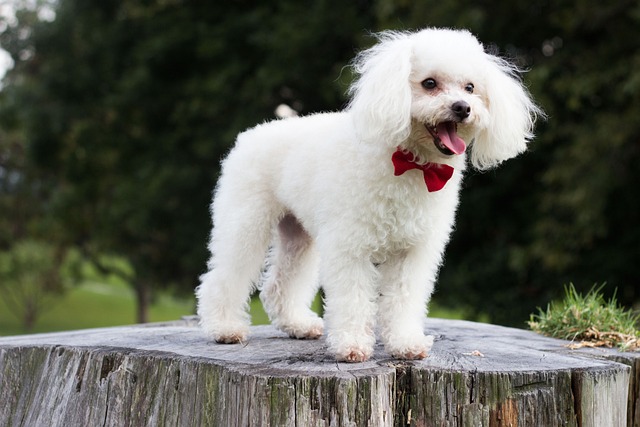Unraveling the Mystery: Do Miniature Poodles Bark a Lot?
If you’ve ever been charmed by the elegance of miniature poodles but wondered about their vocal tendencies, you’re not alone. The burning question many potential owners have is: Do miniature poodles bark a lot? In this article, we delve into the delightful world of these compact canines to uncover the truth behind their vocal habits and what it means for those considering them as furry companions.
The Crux of the Matter: Do Miniature Poodles Bark a Lot?
Let’s cut to the chase – yes, miniature poodles do have a liking for barking. However, the frequency and reasons behind their barks are influenced by a variety of factors. Understanding these factors can help prospective owners make informed decisions and appreciate the unique qualities miniature poodles bring to the table.
The Miniature Poodle Bark a Lot Persona: A Blend of Charm and Vocal Expression
Miniature poodles are smaller than usual Poodles and they are really savvy canines who are really smart dogs! Despite the fact that they’re little and adorable, don’t let that fool you — they possess large brainpower. These little dogs are smart and speedy students, and they can sort out stunts and orders quicker than you’d anticipate. You can train them to be a good guard dog and if they are hyper you can even train them to reduce their hyper behavior. It’s not just about following requests; small-scale Poodles additionally comprehend how we feel, offering solace when we’re miserable or simply being incredible buddies. They’re similar to fuzzy critical-thinking wizards, making them amusing to play and prepare with. Whether it’s flaunting their abilities in canine rivalries or basically lighting up our day with their shrewd tricks, these little buddies demonstrate that enormous knowledge can come in little bundles!
Guard Dog Instincts: Do Miniature Poodles Bark a Lot?
Poodles could look fancy with their cushioned coats, however, did you realize they have some serious gatekeeper impulses as well? Correct, these up-to-date puppies are something other than great looks — they have a defensive side. Poodles are known for being ready and vigilant, making them amazing guard dogs. Despite their exquisite appearance, they won’t hesitate to bark and alarm their proprietors assuming something appears to be not exactly right. It resembles having a shaggy safety officer! In this way, don’t be tricked by the extravagant twists; behind those charming eyes, there’s a Poodle prepared to look out and ensure everything is free from any potential harm in their area.

Factors Influencing Barking Behavior
Social Interaction
The social scene hugely affects how Poodles utilize their bark! These friendly fur-balls love to associate with individuals and different canines, and in some cases, they can’t hold back their passion. If they’re feeling desolate or have any desire to jump in and let loose, Poodles could bark to definitely stand out or tell everybody they’re hanging around for the party. On the other side, in the event that they sense something strange or feel a piece uncomfortable, they could bark to caution everybody, flaunting their defensive side. Thus, the next time you hear a Poodle yapping, they could say, “We should play!” or “Hello, something’s happening — better look at it!” It’s their approach to visiting with us and their general surroundings, ensuring they’re important for the activity.
Environmental Stimuli
Poodles, those shaggy companions we revere, are affected by their environmental factors more than we could suspect, particularly with regard to yelping. These clever canines use yelping as their approach to conversing with us, yet the climate assumes a major part in the amount they bark. Regular things like different canines, individuals strolling by, or even clear commotions can intensify their yapping. Preparing them with uplifting tones and making a quiet space can assist with holding the woofing under control. In this way, the following time your Poodle gets loquacious, consider what’s happening around them – it may very well be their approach to sharing their contemplation on the world.

Managing and Training Miniature Poodle Barking
Early Training Matters
Early preparation works like enchantment when it comes to forming the yapping behavior of Poodles. Showing these brilliant little guys the ropes every step of the way can immensely affect their yapping conduct. At the point when they’re still little fluffballs, acquainting them with fundamental orders and uplifting feedback makes a clear groundwork. Poodles, being speedy students, get on quickly, and on the off chance that you make preparing a tomfoolery and positive experience, they’ll bark less out of disarray or uneasiness. Early socialization with different canines and individuals additionally assists them with feeling good in various circumstances, lessening the opportunity of extreme woofing because of dread or newness. Thus, focusing profoundly on early preparation not only sets your Poodle ready for being a polite little guy but also holds their yapping under tight restraints, making your fuzzy companion a delight to be near.
Socialization Strategies
Socialization procedures assume a key part in molding the yapping conduct of Poodles, making them great sidekicks as well as respectful ones as well. At the point when these cordial fur balls are presented to different individuals, places, and different canines in their initial days, it assists them with grasping their general surroundings. This openness limits the possibility of them yelping unnecessarily when confronted with new circumstances or experiencing new faces. Customary playdates and positive associations with different puppies add to their solace in group environments, lessening the probability of woofing out of dread or weakness. In this way, by making socialization a tomfoolery and positive experience, you’re making an agreeable Poodle as well as a calmer and loosened-up one, making your shaggy companion a genuine extrovert.

Real-Life Scenarios: Miniature Poodles as Vocal Companions
Alerting to Danger
Little Poodles might be small in size, however, they play a major part as regular guard dogs. These ready and discerning puppies have a natural capacity to detect possible risks and rush to tell their proprietors. Whether it’s a thump on the entryway, a new solid, or somebody drawing nearer, Small Poodles are fully on guard. Their sharp faculties and sharp impulses make them fantastic at making their human colleagues aware of anything strange. According to a bark that, “Hello, something’s going on!” these little gatekeepers guarantee that their friends and family know and are prepared, demonstrating that size doesn’t make any difference with regards to watching out for the home front.

Expressing Joy and Affection
Smaller than usual Poodles are not simply cunning; they’re likewise supportive at communicating satisfaction and warmth. These little fur balls have a talent for making their sentiments gem understood, particularly when they’re blissful. From swaying tails and fun moves to cheerful barks and cuddly minutes, Smaller-than-usual Poodles wear their hearts on their shaggy sleeves. Their expressive nature radiates through, making an irresistible environment of adoration and bliss. At the point when they see their #1 people, their energy is infectious, making each communication an endearing encounter. Small Poodles really demonstrate that adoration knows no size, and their lovable articulations of happiness make them keen mates as well as great heaps of fondness.
Conclusion
while the facts confirm that small-scale poodles have a penchant for woofing, it’s a viewpoint well established in their knowledge, friendliness, and defensive impulses. For those considering these great mates, embracing their vocal inclinations and diverting them through preparation and understanding can prompt an agreeable relationship. In this way, if you’re prepared for a mix of appeal, knowledge, and a touch of vocal articulation, smaller-than-usual poodles may very well be the ideal expansion to your family

